2024 International Congress on Medieval Studies: Report
59th ICMS (9–11 May 2024)
Held in a transitional ‘hybrid’ form
with RGME Co-Sponsored Sessions,
an Open Business Meeting,
and Co-Sponsored Reception
In a Nutshell:
Mission Accomplished!
With Thanks to our Participants,
Co-Sponsors, Audience, and Friends
[Posted on 14 May 2024]
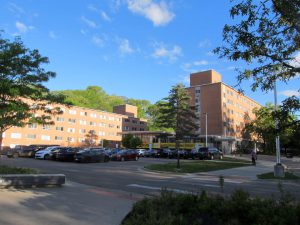
Western Michigan University, Valley III from the side. Photograph: David W. Sorenson.
After the successful completion of all our activities at the 59th Annual 2024 International Congress on Medieval Studies International Congress on Medieval Studies (ICMS), we report our accomplishments and give updates about changes to the Program which we announced (with updates as appropriate) for its items. See the full ICMS Program issued by its organizing Committee:
The Journey
Already from our first preparations toward the 2024 Congress,
- starting with the 2023 Congress and our Open Business Meeting there to invite proposals,
- moving on to our proposals for Sessions for 2024 submitted to the Congress Committee by 1 June 2023,
- progressing with the approved Call for Papers for the 2024 ICMS,
- reaching the firm conclusion of that Call on 15 September 2024, and
- selecting the Program for our Sessions according to responses to that Call and related developments,
we have made revisions and provided updates for our plan.
They gave rise to our announcement for our own (and co-sponsored) Program (including the details of Sessions, their speakers, titles of papers, order of presentation, and so on; as well as ancillary events such as the Anniversary Reception), its updates throughout the months from October to May and the start of the Congress. Now we follow up with the Report.
The proposals received not only yielded Programs for which the order of Papers and the follow-up invitation to Presiders and Panelists, but also encouraged us to combine resources within the Research Group, with our frequent co-sponsor, the Societas Magica, and with others. Thus we collaboratively created a strong program of activities for the 2024 Congress.
Along the way, between
- the submission of our selected Program to the Congress Committee by 15 October 2023,
- its acceptance,
- the assignment of dates, times, and venues for the individual activities for the 2024 Congress Program as officially published (with a series of Corrigenda, not affecting us, as the date of the Congress approached), and
- the start of the Congress itself on Thursday 9 May 2024, with events variously in online and/or in-person formats,
our own 2024 Congress Program has had a few minor revisions, as people and technological arrangements permitted.
These changes did not interfere with the overall success of our activities. Our 2024 Congress Program reported various changes up to the Congress; this Report describes those effected at or around the Congress.
Access Included
As in 2023, the RGME responded to the partly ‘hybrid’ conditions of the Congress by providing its Zoom Meetings for two scheduled solely ‘In Person’ Sessions, as well as for our In-Person catered lunchtime Open Business Meeting, and by reserving an onsite Remote Participation Room on campus for those participants for a scheduled ‘Virtual’ Session who were present at the Congress to be able to gather to sign on to the online Session hosted by the Congress Confex Portal. The RGME managed all these extra Zoom provisions and reservations, as part of its contribution to sponsoring or co-sponsoring Sessions at the ICMS over the years.
It can be worth noting that those donations — at the cost of the RGME, are made possible by donations to enable its Zoom Subscription, by our own provisions for technical backup, and principally by the many pro-bono donations by its Director as overall organizer and co-ordinator of the RGME activities at the Congress and elsewhere — are not covered within the costs to produce the Congress, which registration fees by attendees online and in-person work to subsidize. The extra efforts by the RGME to provide features or facilities for the contributors, participants, and attendees of its activities at the Congress, whether online or onsite, correspond with our approach to our activities of many kinds.
In this spirit, the RGME has consistently stepped up to the plate in response to changes in the facilities for the ICMS before and after the start of the Covid-19 pandemic, when the Congress was successively
- 1) cancelled outright (2020),
- 2) rescheduled in online format only (2021), and
- 3) re-introduced in a partly in-person, partly virtual, ‘hybrid’ format (2022, 2o23, 2024, and more).
Throughout these developments, responding to their changing requirements, the RGME has continued to seek, insofar as possible with our own limited resources, to provide access to our sponsored and co-sponsored Congress activities to as wide an audience as possible, including those with disablilities, health issues, and difficulties in finding resources to travel and cover expenses to attend the Congress in person.
These ‘extras’ which we provide stand alongside the RGME tradition for many years of promoting our authors and the contributions of their work to our Congress Programs (see our Congress Activities) by the series of RGME promotional notices for the year’s Congress (with updates):
- on our official Website (You are Here),
- on our Social Media (listed Below),
- in the Posters for each of our Congress activities, and
- in the Congress Abstracts which we publish for the Authors’ presentations.
The Posters normally are displayed in printed form at the Congress — where permitted, such as on cork boards in the different buildings and in the rooms where our events take place — and on the RGME website, with printed copies also sent to presenters as souvenirs to display in their offices or studies and to give to their mothers. For example for the 2015 Congress:

Derek Shank stands beside the RGME Poster Display for the 2025 ICMS. Photography by Mildred Budny.
The Abstracts appear in their own individual webpages — which can 1) extend for a longer span than the assigned limit (100 words) for the submission of a proposal for a Congress Paper; 2) add notes, links, and bibliography; and 3) include images — as publications in their own right.
Moreover, we take care to index all the Authors’ Abstracts for a given Congress to grant wider access both:
The Arrival
After the Journey to arrive, there remained some bumps in the road at the destination. The RGME Director was unable to travel for health reasons, and so had to attend online.
Program
One person on the Program for one Session decided not to attend. Technical issues with one Speaker’s PowerPoint Presentation and its Zoom projection interrupted a short span of the flow of slides in an expertly crafted presentation in another Session, but this interruption could smoothly be kept to a brief minimum through co-ordination prepared ahead of time between the Speaker and the RGME Zoom Host, together with the Session Organizer. The prepared co-ordination ahead of time for hybrid access dropped the ball between one scheduled in-person Session and the RGME-hosted Zoom online facility, required, it turned out, not as an extra, but as an essential, so as to enable the Presider and two of the Speakers unable to travel to the Congress to participate in the Session.
Audience Participation
At the last minute, an audience member generously offered to lend his computer so that the Organizer / Second Speaker could connect the Zoom Meeting for the Session and the In-Person Room. We give thanks to collegiality and generous resourcefulness.
Posters
Another surprise came for the RGME Posters for our Congress Activities when the eve of the Congress arrived and participants came on site. We suddenly discovered that the 2024 Congress prohibited the display of posters anywhere in a printed form, apart from selected tables requiring horizontal piles, rather than enabling vertical display for which our Posters are designed.
This change meant that the extra efforts by our Trustee and Co-Organizer David Porreca in the days before the Congress to produced printed Posters for display and distribution there — while our Director could not travel to the Congress to bring them as usual — were thwarted. Henceforth, we will plan accordingly and distribute our Posters outside the Congress walls, both in digital and printed formats.
By fortunate choice, without knowing about the Congress’s redirections, the Director had posted the newly-designed Posters in a Web Gallery of their own on our website just a couple of days before the Congress, in a new departure for our tradition of sponsorship and co-sponsorship. Customarily, she would post them in the RGME webpost for the year’s Congress shortly after it had been accomplished, as part of its Report. (See 2023 International Congress on Medieval Studies: Report.)
Now, see the special Pop-Up Exhibition!
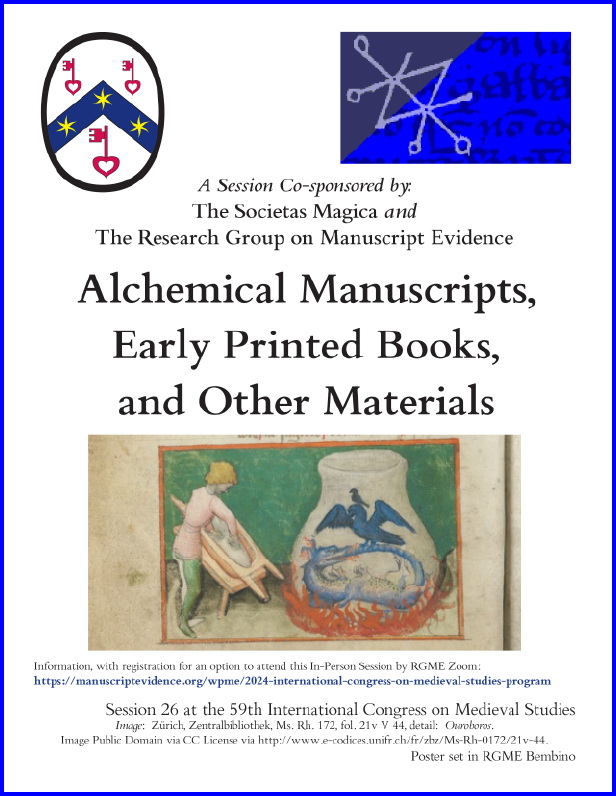
2024 ICMS Alchemical Session Poster 2
The Program as Accomplished
Our Program comprised:
- three Co-sponsored Sessions
- our Open Business Meeting and
- a co-sponsored Anniversary Reception.
In stages, first (in November 2023) we announced the Sessions, and reported the sequence of papers for them. Next (January 2024), with information from the ICMS, we could report their assigned times, days, and locations on campus in cases of the in-person events, along with our other activities at the Congress. Then we began to publish the abstracts for them; that process is now completed. Soon we will complete the Indexes for them.
For the In-Person Sessions and the Open Business Meeting, the RGME provided an online option for Congress Registrants through our Zoom Subscription and our Eventbrite Registration Portal:
‘Hybrid’ Facilities
Like last year (see 2023 International Congress on Medieval Studies: Report), the RGME offered Registration (without charge) for Online access through our Zoom Subscription to some of our In-Person events this year. Likewise we offered registration for our two In-Person events to help us to learn how many to expect to attend for our planning and the catering for our Open Business Meeting and Co-Sponsored Reception.
For one Online Session, a remote-participation conference room was reserved so that participants and attendees on campus for the Congress might gather to join the online format while in company.
At ICMS for the RGME Anniversary Year
In 2024, the RGME celebrates its Anniversary Year to mark 25 years as a nonprofit educational corporation based in Princeton, New Jersey, and 25 years as an international scholarly society founded out of a major research project at Corpus Christi College in the University of Cambridge.
For our Anniversary Year, the theme is “Bridges”.

Ada Bridge pylon, Belgrade, Serbia. Photograph Petar Milošević (1 August 2021). Image via Wikimedia Creative Commons Attribution-Share Alike 4.0 International license.
Read the rest of this entry →







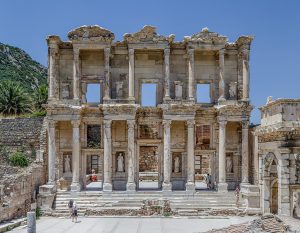
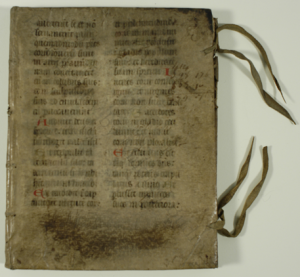
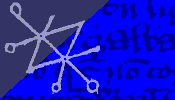
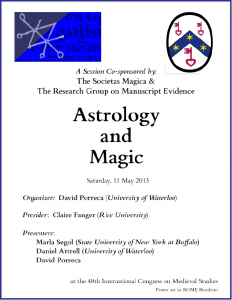
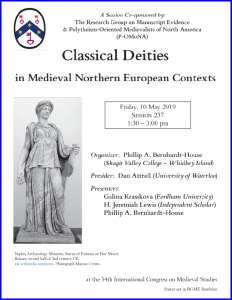
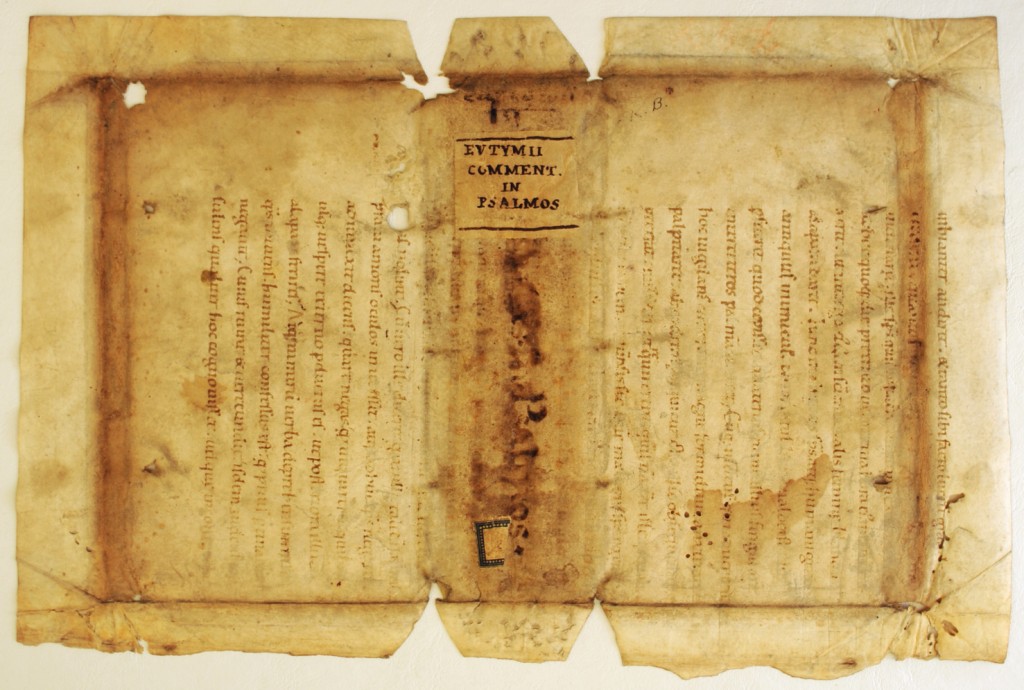
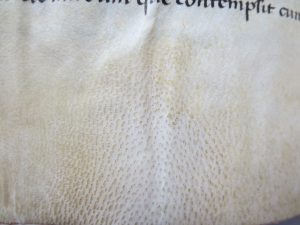
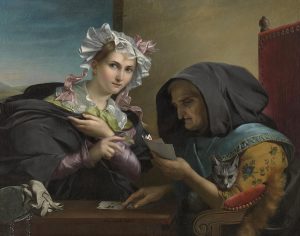
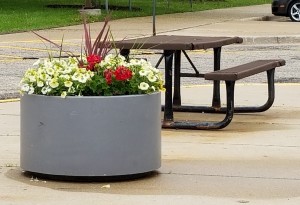
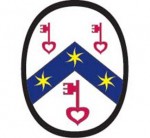
2025 International Congress on Medieval Studies: Program
April 16, 2025 in Conference, Conference Announcement, ICMS, International Congress on Medieval Studies, Kalamazoo, Manuscript Studies, POMONA, Postal History at Kalamazoo, Societas Magica
2025 International Congress
on Medieval Studies:
Program of RGME Activities
60th ICMS
Thursday through Saturday, 8–10 May 2025
(with Sessions variously
in Person, Online, or Hybrid)
[Posted on 16 January 2025, with updates]
With the shaping of the Program as a whole for the 2025 International Congress on Medieval Studies (ICMS), we announce the Program for the Activities sponsored and co-sponsored by the Research Group on Manuscript Evidence. They comprise sponsored and co-sponsored Sessions of Papers; and our Annual Open Business Meeting at the Congress.
For information about the 2025 Congress overall, see its website.
Los Angeles, Getty Center, Ms. Ludwig XV 7 (83.MR.177), fol. 1. Scipio and Guillaume de Loris Lying in Their Beds Dreaming. Image Public domain, via Wikimedia Commons.
Building upon our successful activities at the 2024 ICMS (see our 2024 International Congress on Medieval Studies Report), we prepared for the 2025 ICMS. First we proposed a set of sessions, sponsored and co-sponsored. Then, when they had been accepted by the Congress Committee, we issued the Call for Papers (CFP) for our proposed Sessions. The strength and number of the responses by the due date (15 September 2024) led us to seek, in some cases, two sessions in place of the one which we had proposed.
Now that the Congress Program itself has been scheduled, we can present the Program of our activities, both sponsored and co-sponsored.
We give thanks to our organizers, co-organizers, presenters, respondents, advisors, and the Congress.
Read the rest of this entry →
Tags: Almandal, Apocalypse Commentaries, Authorship, Beatus Manuscripts, Beatus of Saint-Sever, Divination, Dream Books, Grimoires, History of Magic, International Congress on Medieval Studies, Lapidario, Ludic Marginalia, Magic, Mail Delivery Networks, Manuscript studies, Old English Psychomacnia, Papal Prophecies, Petites Heures de Jean de Berry, Picatrix, Postal History, Postal History at Kalamazoo, Psychomachia, René d'Anjou, Sanas Cormaic, Societas Magica, Solomonic Magic, Women in Manuscripts
No Comments »